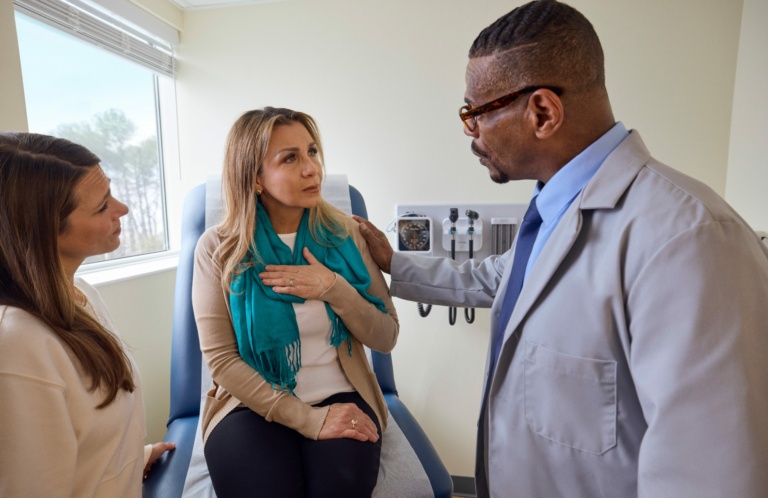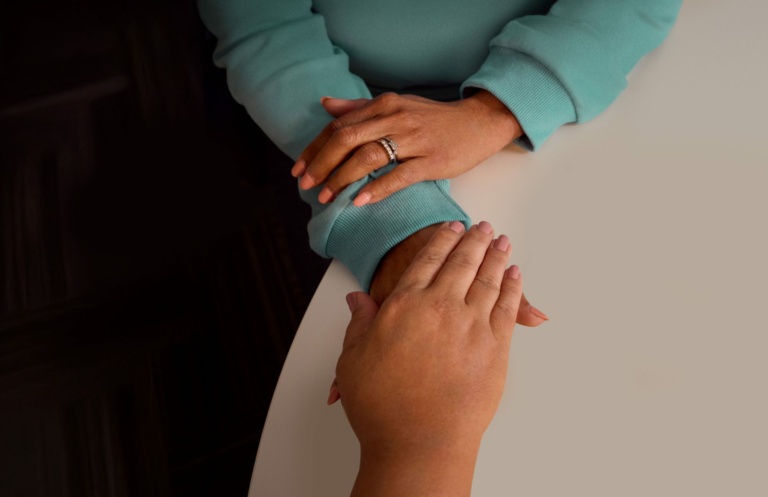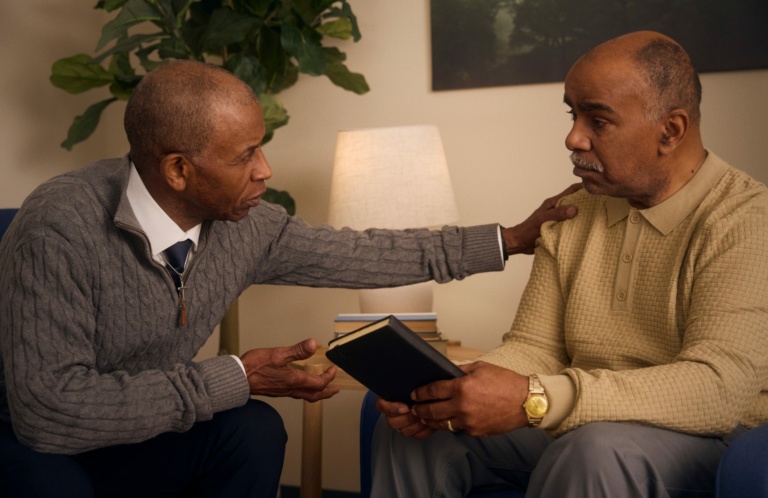FAQ discussion guide
This guide helps you answer common questions and address misconceptions that may prevent people from considering clinical trial participation.

Clinical trials help researchers learn how our bodies respond to medicines and other treatments. They test new ways to help prevent, find, diagnose or treat diseases and whether investigational treatments or new uses for existing treatments are safe and work well. Yet many people may not fully understand how clinical trials work or the role they can play. As a trusted voice, you play an important part in helping your community understand the value of clinical trial participation. Through open conversations, you can help answer what clinical trials are, discuss common questions, build trust and demystify the process. Taking part in clinical trials helps drive the research and development of investigational medicines.
Diseases can impact people differently based on their age, gender, weight, race, ethnicity and other factors. That’s why it’s important for clinical trials to include people from a wide variety of backgrounds. Currently, Black Americans make up nearly 14% of the U.S. population but account for only 8% of clinical trial participants. Similarly, Hispanic Americans represent nearly 20% of the population but only 11% of participants. Representation in clinical trials helps researchers gain a more complete picture of how investigational medicines work across populations.
Representation is key. When leaders like you speak openly and authentically about clinical trials, you can begin breaking down barriers and help shape the future of health care for everyone.

There are many barriers that can keep people from participating in clinical trials. Talking openly
about these challenges helps build trust and creates new opportunities for solutions.
Many people don’t know what clinical trials are, what’s involved, where to find them or how to sign up. We aim to equip people with information to help support their decisions about whether to participate in a clinical trial. We’ve developed the resources below to help facilitate the conversation.

Communities of color haven’t always been equally represented or treated in health care. Acknowledging that history can open the door to honest conversations about clinical trial participation. To expand our outreach and engage directly in communities, we’ve come together with Acclinate and BlackDoctor.org.

Transportation barriers can make it difficult for people to join clinical trials. Decentralized clinical trials and transportation support can help make participation easier. That’s why we collaborate with organizations like Suvoda to help ease transportation barriers through rides to and from trial sites.
As a trusted leader, you can help people in your community understand that clinical trial participation can contribute to medical research that will ultimately support the development of safe and effective medicines.
 Advancing science
Advancing scienceClinical trial participation provides an opportunity to contribute to data that may advance research and help future generations.
 Building trust
Building trustHealth care institutions haven’t consistently engaged all communities in the past. We can help build trust by advocating for inclusion and representation in clinical trials.
 Becoming informed
Becoming informedParticipating in a clinical trial can allow a person to take a more active role in their health journey and provide access to research that may be relevant to their care.
Open and honest conversations are key to building trust between communities and clinical research. These resources are designed to support you as you share information, address common questions and encourage informed decision-making about clinical trials. Use these resources to guide meaningful discussions, promote greater understanding of clinical trials and highlight the importance of representation.
This guide helps you answer common questions and address misconceptions that may prevent people from considering clinical trial participation.
This brochure breaks down what clinical trials are, how they work and why clinical trial participants should represent the people impacted by the disease. Use this brochure to help people make informed decisions about clinical trial participation.
Help people better understand clinical trials by fighting myths with facts.
Get more information about talking to your patients about clinical trials and find clinical trial opportunities.
Join us in a conversation. Let’s help create a future of health care that’s inclusive and representative of all communities.
